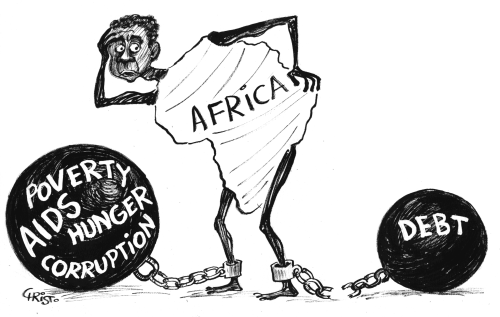This article was published in The Citizen Newspaper – Tanzania on June 4th, 2024.
Language is an important factor in expressing as well as making sense of the societal realities. When the term ‘Nation’ is used, there is a temptation to not consider it in the same way as when we say ‘People.’
This is why there are things that make sense when we say the nation needs them, but do not make sense in the same way when we say the people need them, as they do not reflect immediately the actual needs of the people.
Here it is left for personal discernment to adjudge which adds more value in the life of the people, whether it is the need of the nation or the needs of the people of the nation, which is already a long time debate among political and economic thinkers
The sociopolitical reality of all free and democratic states, like Tanzania, is hinged on a collaborative relationship between the people and those chosen to be leaders. Underlying this is the unity in the mind of the people, whose vision is(ideally) carried out by the leaders.
As such, leadership, at all levels, should have as its target, fulfilling the vision of the people, which is already implied, even when the leader employs his or her personal creativity.

The major question that prompted this exposition is whether the general populace is capable of distinguishing the opinion of the leader from the opinion of the people.
The two are not the same, and more especially, l the opinion of the people should not be ignored.
This is because the leaders do not see the actual realities in the same way as the people they lead. An actual and easy example will be that of a person experiencing floods, versus the person who manages statistics about the people affected by the flood.
A sociologist Anthony Giddens explains leadership as “An interactive process that provides the needed guidance and direction.” It is worth noting the words ‘the needed guidance’ as they are key to the sociopolitical and economic reality of our nation.
While a leader is not there to overthrow, he or she is also not there to execute an independently personal mission. Only the people who experience certain realities or problems can raise alarm regarding issues that need ‘direction’, which leaders need to address.
As such in distinguishing the consistency of the opinion of the leaders with the good of the people we ought to examine the interaction between the leader, the people being led, and the circumstantial realities. Where there are noticeable discrepancies in this interaction there is need to review the priorities set.
Another big question that needs to be put in light is whether leadership has boundaries in both sense, jurisdiction, and duty. A situation where a leader is taken as a demigod is a steep slope down the pit of negligence of common good and misplacement of priorities. This is because it will compromise the sense of duty and the accountability that comes with the responsibility for the public office for common good.
It should be acknowledged that leaders have limitations, despite their competence in leadership and political acumen. The common good is not achieved to the maximum if professionalism is not taken along in the course of running public affairs.
Think of an instance where a political leader has a medical or construction opinion which does not reflect the mastery required by professionals in that field, yet more powerful than theirs by virtue of the political office one occupies.
For generations to come, there is need to impart in them by both education and example that leadership is, among other things, giving direction when needed and addressing actual problems; it is not a parade of honours, or a license for bullying and extravagance.
We need to nurture more and more visionary leaders who prioritize the people in their policies at all times, even when elections are out of sight.

What would make Tanzania a free and democratic state?
Indeed we always have to examine the principle if at all it has remained consistent with the practice. Thank you for provocking a thought there confere.
This is a “work written in the golden ink.” Keep up the good spirit my dear friend.
Thank you very much Bro. God bless.